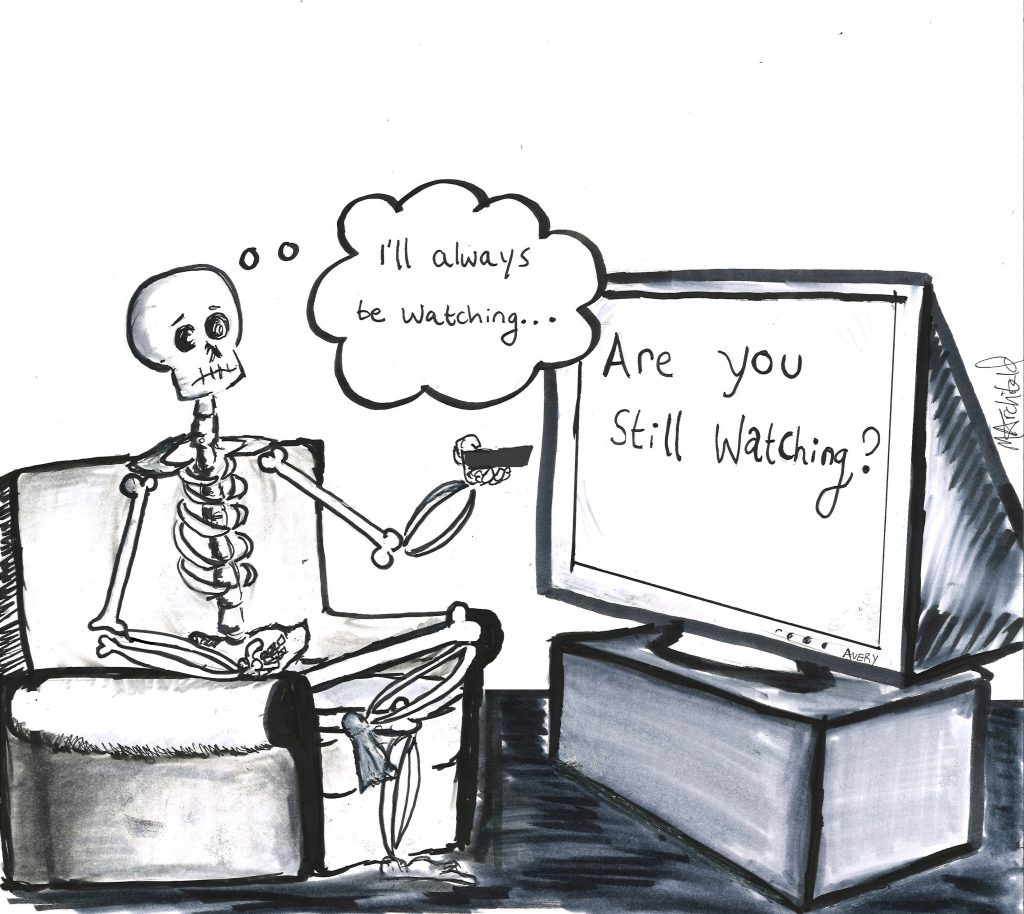
BYU student Kalel Cascardi was bored in his apartment, so he pulled out his laptop to watch an episode of his favorite show on Netflix. One episode turned into three episodes, and before he knew it he’d binge-watched an entire season of Stranger Things in just four days.
“I watched a little with my friends, but the last few days I watched by myself because I wanted to finish,” Cascardi said. “You just want to find out what happens and it’s already there … so you just want to get it over with.”
According to recent research by BYU health science professor Lori Spruance, millennials who binge-watch — watching two to six episodes of a show at one time — may have less healthy diets, eat out more often and exercise less.
Spruance said she was especially interested in the transition students experience when they first go to college and how their decisions affect their long-term health.
“A lot of the habits that you establish in childhood or adolescence and even young adulthood are habits that you may have for life,” Spruance said.
Spruance surveyed 500 college students in northern Utah, asking them about their TV usage, physical activity, diet and body mass index.
Those who reported eating out one or more times per week were more likely to be weekly binge-watchers compared to those who did not eat out in an average week.
“We do know that people who eat out more frequently tend to have less healthful diets than individuals who eat from home, because generally food you purchase at a restaurant has more fat, sodium and calories,” Spruance said.
Females were also more likely to be weekly binge-watchers than males.
Results also showed those who reported eating fruit once a day had a much lower chance of being monthly binge-watchers than those who did not consume fruit.
Other research cited in the study has shown the more time one spends in front of the TV, the less time one spends on physical activity. Additionally, research indicates watching TV is correlated with obesity.
Some researchers hypothesize that eating while watching TV can disrupt the way one’s body reacts to cues, such as feeling full — causing more food to be consumed.
“Sometimes when we multitask, it’s easy to not pay attention to if you’re feeling full, or the types of foods you’ve eaten, or how much of them you’ve eaten,” Spruance said.
BYU media effects professor Kevin John said watching TV doesn’t directly make someone overweight.
“Watching TV, and especially binge-watching, results in a bunch of connected behaviors like sitting on the couch and not moving for extended periods of time, and that type of behavior can absolutely breed the unhealthy types of impact,” John said.
These things are easily mitigated by exercise, according to John, but many people won’t get up when they are in the middle of a Stranger Things marathon.
Spruance said the advent of Netflix and other streaming sites has aided binge-watching.
“Some of our shows, like Stranger Things, are meant more for bingeing as the whole season comes out all at once,” Spruance said. “It is more enabling to binge now than it was 15 years ago, as 15 years ago your option was to just watch the shows that were playing on TV.”
John had a similar viewpoint on the onset of binge culture and its effects.
“When you look at older generations, they know what it was like before media was such a large part of life, so they see that difference and that difference makes them uncomfortable,” John said. “But for younger generations, there is no difference — we are always surrounded by media.”




